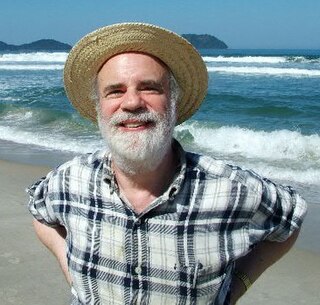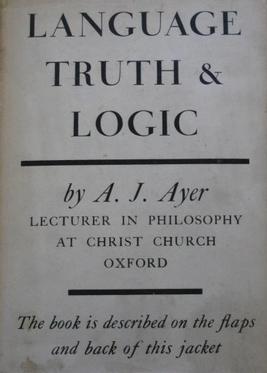Objections and criticisms
Modal fictionalism has encountered various objections and concerns on more conceptual and philosophical grounds. These concerns are not uniformly applicable to all forms of modal fictionalism and often target specific versions of the doctrine.
Artificiality
One significant concern relates to the artificial nature of fictions. Fictional stories are human creations, typically authored by individuals who exercise a significant degree of control over the content and truth within those narratives. When considering modal fictionalism, it becomes evident that not just any narrative about possible worlds can serve as the modal fiction, especially if it is meant to provide heuristic and explanatory advantages similar to realist theories of possible worlds. The worry here is that talk of possible worlds may not be as flexible as typical fictional narratives, as the choice of which story about possible worlds should be the modal fiction might not be entirely within our discretion.
Modal fictionalists can argue that the constraints of the fiction are necessary, just as specific constraints govern the creation of fictional stories about other topics. However, defining these constraints can be challenging, and determining why they are appropriate is no simple task. Even if such constraints are established, there may still be a degree of artificiality in the choice of details left undetermined by these constraints, though this is unlikely to be a fatal problem.
A more specific concern arises regarding the contingency of whether a modal fiction exists at all. If sentient beings had never existed, no stories about possible worlds would have been told. Even if modal fiction is viewed as a Platonic entity (such as a collection of propositions), it might not have been considered fiction if it had never been expressed by storytellers. This concern is particularly relevant when modal truth is thought to depend on the contents of the fiction, as the possibility of blue swans, for instance, should not be contingent upon whether stories have been told. Various responses to this concern have been proposed in the literature. [5]
Incompleteness
Fictions, including modal fictions, often exhibit incompleteness by being silent on certain issues. For example, the Sherlock Holmes stories do not specify the exact population of India or the number of hairs on Dr. Watson's head. Similarly, the modal fiction might also exhibit incompleteness, leaving some propositions without determinate truth values within the fiction.
This incompleteness can pose challenges. For instance, there is the "incompleteness problem," where a fictionalist may remain silent on certain modal issues, not because they believe there is no answer, but because the fiction itself is silent on those issues. This can lead to difficulties in determining the truth or falsity of related modal claims. Different solutions have been proposed, including treating modal claims as indeterminate when the fiction is silent on corresponding questions about possible worlds.
Another concern is that a modal fiction must represent a vast amount of information about possible worlds, as there are infinitely many claims about possible worlds necessary to correspond to all modal claims. However, the finite resources of description can limit the extent to which these propositions can be explicitly stated. While generalizations about possible worlds can help, strong modal fictionalists aiming to reductively analyze modality in terms of the fiction face challenges in representing the implicit content of the fiction without relying on modal notions like implication. [6]
Selection of fiction
A critical aspect of modal fictionalism is the specification of the fiction of possible worlds to be used. Selecting one from many potential candidate stories and justifying this choice is essential, yet often overlooked. While some modal fictionalists offer justifications, many do not.
Timid modal fictionalism provides a straightforward answer to this question by relying on independently obtaining modal truths. Strong modal fictionalists, however, must ensure that the content of the fiction aligns with the modal claims they wish to make. Nonetheless, this doesn't help them determine the content of the fiction itself. Specifying this content without relying on modal notions like implication is a challenge faced by strong modal fictionalists.
Constraints on the choice of fiction may be drawn from various sources, such as conformity with pre-theoretic modal judgments, inclusion of literal truths about our actual world, and considerations of our imaginative practices when forming modal beliefs. Even with these constraints, there might still be multiple equally suitable fictions, raising questions about how to handle differing fictional choices and their implications for modal claims.
Theoretical primitives
Modal fictionalism relies on the "According to PW..." operator as a central theoretical tool. This operator poses a challenge, as it appears to be a modal notion. For modal fictionalists interested in analyzing modality in terms of their fiction, this operator should not be analyzed in terms of standard modal devices or possible worlds. Whether it should be considered a primitive or analyzed further remains a matter of debate and is a concern for those seeking a reductive analysis of modality.
Possible worlds semantics
Some philosophers[ who? ] have argued that modal fictionalism may not provide all the benefits of standard possible worlds semantics for modal discourse. John Divers, in particular, has raised objections to this aspect of modal fictionalism, questioning whether it can fully capture the advantages of traditional possible worlds semantics.[ citation needed ]
Three more concerns
Modal fictionalism has also faced additional objections and concerns:
- The Threat from Abstractionism: Abstractionist realists treat possible worlds as representational entities similar to fictions. This poses a challenge for modal fictionalists who need to explain why they prefer fictional narratives over abstractionist realism.
- Concern About Concern: Analogous to Kripke's argument from concern, this concern questions whether individuals genuinely care about modal claims being framed as claims about a fiction of possible worlds rather than directly about the subject matter in question.
- About Aboutness: This concern revolves around the notion that the paraphrases of modal claims in terms of a fiction of possible worlds may not be about the same things as the original modal claims, potentially affecting the core point of modal claims being about their subject matter.
These concerns are part of ongoing debates surrounding modal fictionalism and its compatibility with various philosophical positions. [3] [7]





